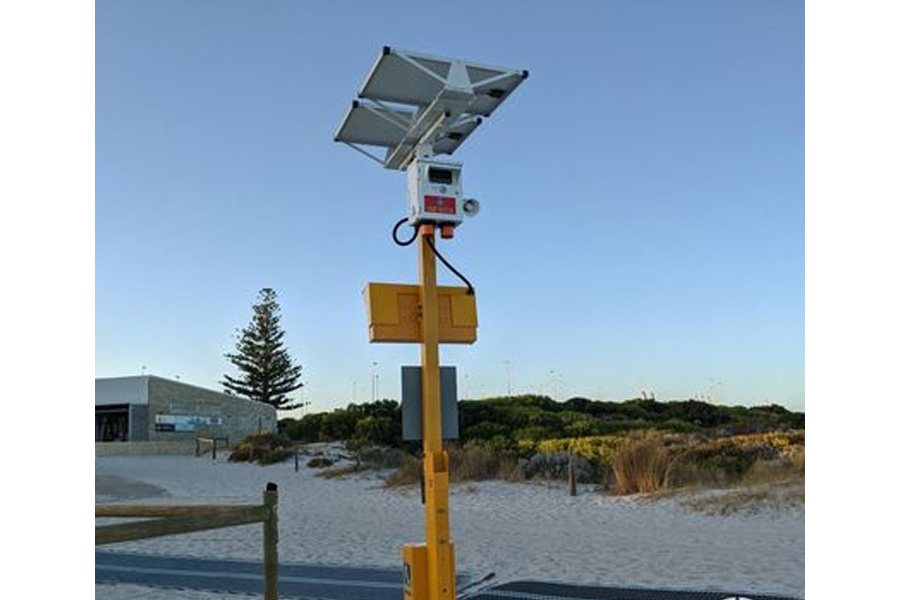
The Definitive Guide to Construction Site Security Cameras: Protect Your Site
Summary:
- importance of having construction site security cameras in preventing theft and protecting workers from any harm
- real-time viewing, liability reduction, and creating better site management
- what to look for in camera site selection
- actionable recommendations on site camera system selection and deployment
- a strong conclusion with a call to action to construction managers and decision-makers.
Introduction: Protect Your Construction Site with High-Tech Surveillance
Imagine this: you arrive at your construction site and then realize that some of the essential materials or expensive machinery that were there are nowhere to be found. Or worse, a serious accident has occurred and there is no footage to clear what actually happened. This is not only familiar but also happening around the world on many construction projects.
The way to minimize all these risks is by investing in construction site security cameras. Be it a massive large-scale project or a smaller build, site security cameras provide continuous monitoring, reduce theft to a great deal, and guarantee workers’ safety. In this article, we are going to break down some of the key benefits from the security systems and how they can basically transform the way you manage your site.
Why Construction Site Security Cameras Become a Necessity
1. Deterring Theft and Vandalism
Construction sites happen to be prime targets for thieves and vandals alike. Having construction site security cameras present deters from crime as there will always be a high chance of getting caught in the act. Potential thieves would rethink stealing when they know that there are security cameras all over the place.
For instance, just recently, a construction site at one of the biggest building sites in Australia narrowly missed giving thieves an opportunity to steal some valuable items after suspicious activity by cameras was captured and the site managers took prompt action. As it is now, the loss would be gigantic if not for the **site security cameras**.
2. Real-Time Monitoring and Incident Response
Today, among the most important features that modern site security cameras offer is real-time monitoring. Such capabilities allow you to monitor numerous locations on-site remotely. The alerts and footage allow instant response to a situation whether it is a breach in security or some safety risk.
Imagine being able to check in on your site after hours via your phone or laptop, ensuring everything is fine even when you can’t be there in person. That’s the kind of peace of mind that construction site cameras provide.
3. Improving Safety and Liability Protection
Construction sites tend to be quite hazardous. Here, risks vary from accidents to injuries. The installation of security cameras at construction sites monitors potential security breaches. A safety protocol is also observed, making sure that workers follow the specifications of all safety guidelines and can even prevent accidents.
Ideally, an accident or incident will never happen, but having footage will prove invaluable for legal and insurance purposes if it does. You’ll have recorded evidence of what happened, helping you avoid false claims and getting a resolution much more quickly.
Essential Features to Consider When Choosing Construction Site Security Cameras
The cameras are not all created equal for a security system. Here is what to look for in a **site security camera that will meet the specific demands of a construction environment:
1. Durability and Weather Resistance
Construction sites are exposed to rain, extreme temperatures, dust, and debris. Look for cameras with long-term efficacy in extreme temperatures, rain, dust, and debris protection. Durable and weather-resistant cameras are necessary when ensuring continuous security.
2. Night Vision and Low-Light Capabilities
Most security breaches happen at night, so there is a need for night vision. Provides clear footage even in low-light condition to allow for round-the-clock surveillance of your site, ensuring that it remains secure, even after working hours.
3. Motion Detection and Smart Alerts
If a smart camera is equipped with a motion detector, it reduces the instances of false alarms and superfluous footage. When anything unusual happens, you receive notifications on your phone or computer. This provides you with ample response time to prevent incidents from getting out of control.
4. Remote Access and Cloud Storage
With remote access, you can monitor your site from wherever you are-from home or the office. Cloud storage allows you to enjoy added security, so even in cases of theft or equipment damage, your footage remains safely backed up off-site.
How to Successfully Install and Use Construction Site Cameras
Here are a few practical tips on how to get the most out of your construction site security cameras
Security Risk Assessment:
Try to figure out what the vulnerable part of your construction site is. This could include entry and exit points, storage areas, or areas containing expensive machinery.
Install Cameras in Strategic Locations:
Ensure complete coverage by placing cameras at strategic points around the site. There should be no blind spot; it should capture broad views as well as specific high-risk areas.
After-Hours Monitoring Setup:
You can utilize your camera’s motion detection and smart alerts in case someone succeeds in accessing your site after hours. This means you get alerts regarding unusual movements, which will allow you to respond on the spot to potential security problems.
Routine Footage Review and Analysis:
Routine footage review ensures that your camera system is indeed working well. This also helps catch unnoticed safety hazards or site management issues.



